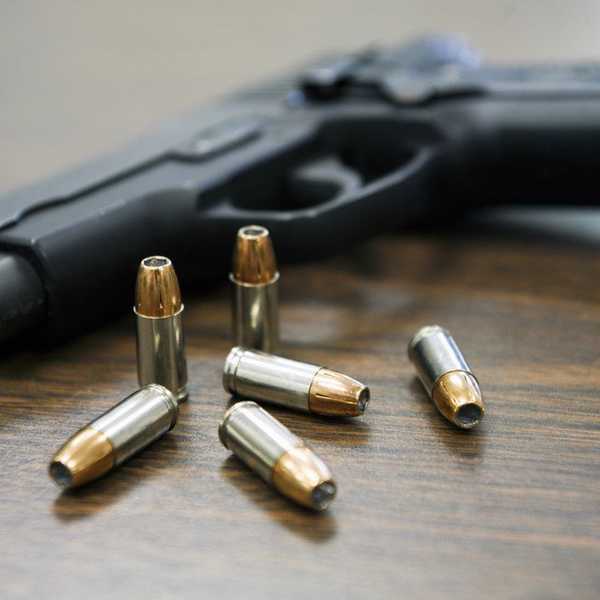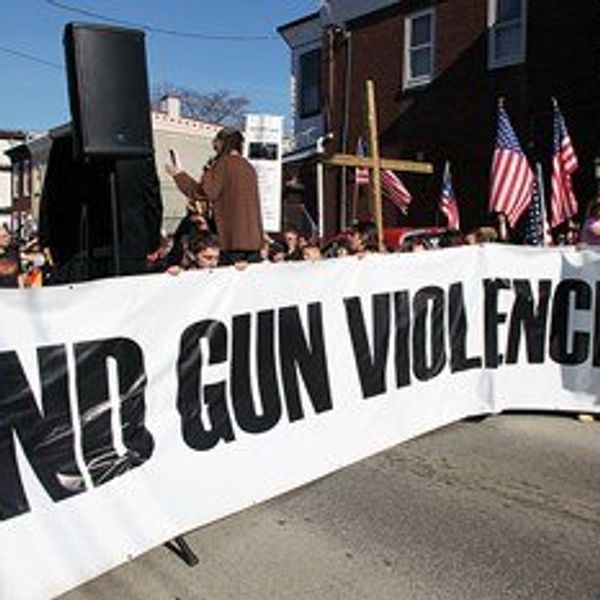The second amendment to the United States Constitution provides law-abiding citizens the right to legally possess firearms. In today’s world, conservatives usually support limited restrictions on gun control, while liberals would prefer more limitations on guns. With statistics on gun usage in the United States, statistics on gun usage in other countries, mass shootings that have occurred, and stories that are spread about both positive and negative gun use, the debate on gun control has become a highly contested and highly controversial topic within the United States. As with many issues circling the United States today, the media is responsible for almost all of the national communication that occurs about the gun control debate. Although the media is theoretically entrusted with the position of covering American social issues in a neutral manner, this is not the case for the gun control debate.
American media is severely limited and relatively one-sided in terms of its coverage of the gun control debate. Information and opinions on gun usage are practically only discussed when mass shootings occur. Not only is the time spent on the issue as well as the locations in which one can find information severely limited, but the presentation of the topic is partisan as well. Since practically all of the coverage about the gun control debate stems from horrific instances of gun usage, most of the coverage leans toward limitations on acquiring and possessing firearms, in the name of preventing a similar type of tragedy from occurring again. While it is no question that gun-related atrocities should not have a place in the world, the nature of the gun control issue provides for one-sided coverage, the side leaning towards increased gun control. This results in the stories about the instances where gun possession provides for positive outcomes being left behind. For example, in 2013, an off-duty police officer who works at an Atlanta middle school subdued a student who was planning to use a gun through the use of his own firearm. Although the officer’s action resulted in injury, he was able to prevent a potential mass shooting and even more injuries, possibly casualties. While these stories are usually reported in the news, they receive far less coverage than those of negative gun usage, which results in the media rarely exploring the pro-gun side. This can be surprising, as the media plays such a big role in society.
Today in the U.S., technology is a large part of popular culture. Many people rely on social media outlets, such as Facebook and Twitter to get daily news and see what is going on in the world around them. Those who do not use social media are likely to rely on television instead, which leaves few people who consistently read the newspaper. When mass shootings or episodes of gun violence occur, the Internet becomes flooded. Tweets that begin with “BREAKING NEWS” fill users’ timelines, Facebook lists articles reporting on the event, and news sources from around the country race to put out their stories. Television shows on major networks are interrupted for live broadcasts covering the recent event and giving updates as they occur. While these examples may contain some information about gun control and the statistics of gun usage, they are primarily focused on relaying the facts of the tragedy so that citizens can stay informed. Days later, however, after the details are released, the media creates buzz around the topic; articles are released that examine the history of gun control in the U.S., describe the state of the issue in terms of public policy today, and request the input of citizens. These articles will contain a comments section which allows for the creation of a dialogue between people throughout the nation, and news sources will create polls in order to gauge the public’s opinion. Suddenly, the switch is flipped. After a couple of weeks, updates on the criminal investigation will continue to roll in, although there will be fewer and they will be less frequent as time goes on. Ultimately, coverage of the story will stop unless a big break in the case is uncovered, and as with the story, the gun control debate quietly slips into oblivion.
I clearly remember the explosion of social media posts that occurred after the church shooting in Charleston, South Carolina on June 17, 2015. A 21-year-old white man with a firearm killed nine people and wounded another at a black Episcopal church, after having prayed with them just before, with the hope of igniting a race war. Almost immediately, the story was playing on all of the news channels and posted on every news website. As soon as word of the shooting found its way onto the Internet, more and more people who I am friends with on Facebook and who I follow on Twitter were posting their reactions and using the hashtag #CharlestonShooting to contribute to the online discussion of the tragedy, and explain why they thought there should be more limitations on guns. This lasted for about four or five days, with the concentration of posts I saw each day consistently decreasing, until they disappeared altogether. Seeing firsthand how coverage of mass shootings spreads through the media, particularly with my own friends and peers, has really opened up to how the coverage of the gun control debate is so limited and one-sided.
As previously stated, gun control is only discussed, for the most part, immediately following large-scale incidents of gun-related violence. This pattern makes gun control quite different from other public policy issues in the United States, as it is really only discussed when a related tragedy occurs. Obviously it is a very good thing that mass shootings do not happen more than they do. However, gun control is a prominent issue in the United States, and therefore should be debated more than it is. The fact that so many mass shootings occur per year combined with the way in which they are reported exemplifies how coverage of the issue of gun control is quite mediocre. In all of the time spent investigating and sharing news on mass shooting crimes, almost only those who are pro-gun control are heard, while those against gun control get left behind. Due to the nature of mass shootings, it is clear why the media strays away from discussing the reduction of limitations on guns, as that seems unsympathetic. However, the fact that the public dialogue ends once the story grows old, and the media rarely covers that side of the debate, raises questions about the freedom of the press.
There are many feasible ways that the media could change communication in order to accurately represent both sides of the gun control debate. Social media sites could allow for more debate through polls and forums to let citizens discuss their beliefs with others who are passionate about the issue. Television networks could run special programs about the gun control debate to update on news surrounding related legislation and to inform the public about the hard facts, so that they can develop their own opinions. In the wake of a horrific tragedy, such as a mass shooting, it is hard for people to see the opposite side and to understand how some people think more freedoms with firearms could ever be a positive thing. It is important to have year-round coverage to prevent the argument from becoming too biased.
Some people may argue that this view of the coverage of the gun control debate is inaccurate. Although the topic may be covered more frequently around major political elections, due to promotion of candidate views, these do not happen often, and when they do, this type of issue is only discussed during debates and interviews. In addition, there are countless blogs that allow the user to write about their opinions on issues such as gun control, and scattered social media posts about the topic. However, all of these instances added up do not equal the amount of one-sided coverage that occurs after a mass shooting. Therefore, while the debate is not all to none, it is still severely weighted in one direction.
Overall, it is clear that the media coverage of the public policy issue of gun control needs to be restructured. The fact that most to all coverage occurs following mass shootings is both ineffective and biased. This style of communication has no direct benefit to the country, and promotes a streamlined nation that discourages free expression of ideas and diverse thinking. Like other issues, gun control must be a continuous debate that contains contributions from both sides, in order to preserve the reputation of the free nation of the U.S.





















